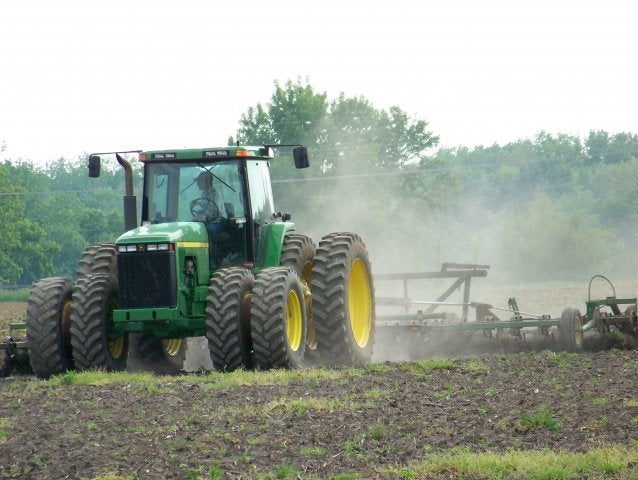MiEnergy encourages farmers to watch for power line equipment
Cresco, IA | Rushford, MN— Farming is perennially near the top of the list of the most dangerous jobs in the United States according to the Bureau of Labor Statistics. One hazard faced by farm workers while they are also feeling the pressure to get the crops in the ground is electricity and the equipment that carries it to homes, farms and businesses. However, with proper planning and education, risks of accidents involving electricity can be greatly reduced.
“There are steps farmers can take to help keep themselves and workers safe when working around electricity,” says Steve Oian, MiEnergy Cooperative’s vice president of electric operations.
“One critical part of safety around electricity is awareness. With the use of large equipment, farmers can easily find themselves in dangerous proximity to overhead lines. Being aware of the location of those wires can help reduce accidents.”
MiEnergy has had a handful of calls on farm equipment coming into contact with electrical facilities during planting season this spring. The cooperative urges farmers and farm workers to remember these tips to stay safe:
- Keep a 10-foot minimum distance around power lines. That means 10 feet above, below, and to the side of power lines.
- Use a spotter when moving machinery around the farm. It can be difficult to judge how close a piece of machinery is from the driver’s seat.
- Use caution when handling long items such as irrigation pipe, ladders and rods. Coming too close to a power line can cause electricity to arc to conducting material or objects.
- Be aware of increased height when loading and transporting tractors on trailer beds. Many tractors are now equipped with radios and communications systems that have very tall antennas extending from the cab that could make contact with power lines.
- Avoid raising the arms of planters, cultivators, or truck beds near power lines.
- Never attempt to raise or move a power line to clear a path.
- Remember, even non-metallic materials such as lumber, tree limbs, tires, ropes and hay will conduct electricity depending on dampness, dust and dirt contamination.
- Overhead electric wires are not the only source of electrical contact that can result in a serious incident. Pole guy wires, used to stabilize utility poles, are grounded. However, when one of the guy wires is broken it can cause an electric current disruption. This can make those neutral wires anything but harmless. If you hit a guy wire and break it, call the utility to fix it. Do not do it yourself. When dealing with electrical poles and wires, always call the electric utility.
“If you do find yourself in a vehicle that has made contact with a power line, stay in the vehicle and call for help,” says Oian.
The only reason to exit equipment that has come into contact with overhead lines is if the equipment is on fire, which is very rare. However, if this is the case, jump off the equipment with your feet together and without touching the ground and vehicle at the same time. Then, still keeping your feet together, hop to safety as you leave the area.


